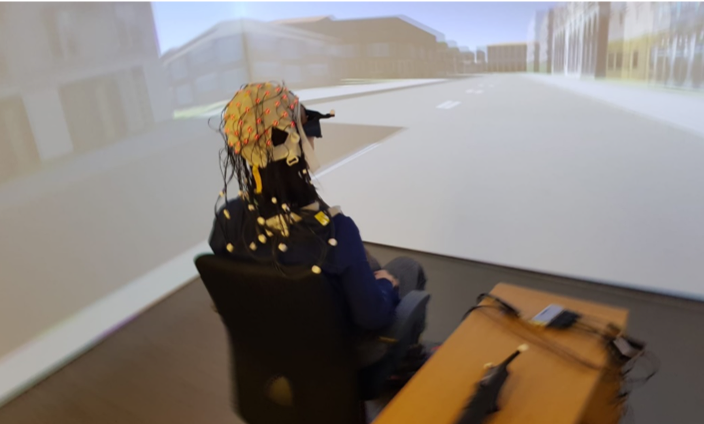#101: Numbed by navigation technologies: How can we counteract?
Do you remember how to get to your favorite coffee shop? What is the shortest path to your best friend's apartment? For this you need to rely on your navigation and spatial learning abilities. However, in unfamiliar environments, we often use our smartphones to facilitate wayfinding, with the known negative effects. In my PhD project I investigate how navigation technologies should be designed to optimally support spatial learning. Are you interested to participate?

More and more people use digital navigation aids - like for example on the smartphone - that rely on Global Positioning System (GPS) localization to facilitate wayfinding, especially in unfamiliar environments. These digital devices enable us to get our current position in space and continuous navigation instructions - such as turn-by-turn directions - in real time while we move through the environment.
Offloading our self-localization skills to the navigation device
Despite these conveniences supporting efficient navigation, smart digital navigation assistants can pose potential disadvantages. Research has found that the continued use of digital navigation aids has negative effects on learning and remembering an unfamiliar environment. Increased navigation system use also has detrimental effects on other spatial abilities, including self-localization and orientation. Wayfinders who are continuously assisted by digital navigation devices tend to offload their self-localization skills to the GPS-enabled device. In addition, they allocate their already narrow attention capacity away from the environment, which further limits spatial learning.
Spatial learning is of great importance to daily life in general beyond navigation, e.g. for success in math, science, engineering, and technology education and jobs. More research is needed to identify the reasons for and minimize the negative effects of digital navigation assistance use on spatial learning. In my PhD thesis, I will develop a neuroadaptive navigation system. Important environmental features - for example 3D landmarks - on digital maps will be adapted to individuals' cognitive load measured by electroencephalogram (EEG) in real time during virtual navigation. The ultimate goal of this neuroadaptive navigation assistance is to optimally support navigators' spatial learning and to orient their attention back to the environment.
We want YOU!
Do you wish to contribute to this research? I am now recruiting participants for my virtual reality navigation experiment in the GIVA CAVE, room Y25-J-87 at Irchel Campus during November and December 2020. The experiment takes around two hours, and you will be compensated with 30 CHF. Please send me an email to bingjie.cheng@uzh.ch if I could raise your interest to participate! I will send you more information related to the experiment in response.
Bingjie Cheng